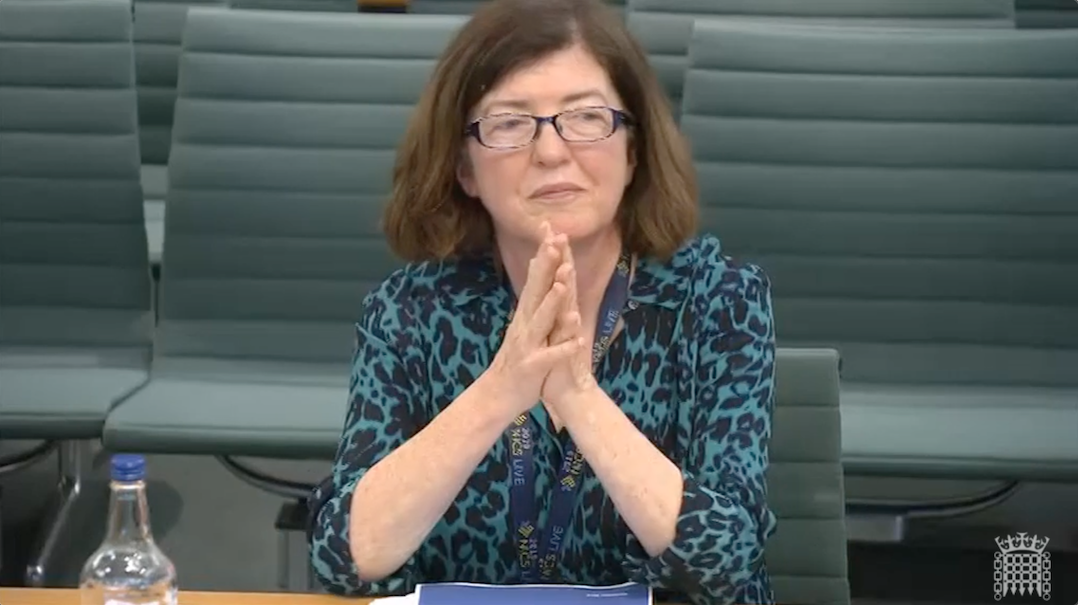The cabinet office yesterday published a written statement into the resignation of Sue Gray, stating that it has given a “confidential assessment” to the Advisory Committee on Business Appointments (Acoba) about whether she broke civil service rules in taking up a job from Keir Starmer while still a senior civil servant.
The statement, penned by Chancellor of the Duchy of Lancaster and deputy PM Oliver Dowden, also explained that Gray had refused to participate in the cabinet office inquiry, prompting another round of uncomfortable headlines for Labour this morning.
It is clear how much oxygen the “Gray-gate” story is taking up at Westminster — something the Conservative party clearly wants, based on its media campaign ahead of the report’s publication.
Indeed, on Tuesday morning a torrent of briefings from Conservative party sources to friendly publications foretold of “damning” details of how Gray had breached civil service rules by holding talks with Labour about her new chief of staff role without informing her bosses in advance.


Given this, many were surprised upon reading the report that Dowden had surprisingly little to say. In lieu of any detail on Gray’s dealings with the Labour party, Dowden explained that he was “unable at this stage to provide further information” about the partygate inquisitor’s departure to “maintain confidentiality towards an individual former employee”.
So why, with Downing Street plainly keen to put Starmer in an awkward position on Gray-gate, was this such a damp squib?
There is one theory, uncovered by the Guardian, that the cabinet office’s decision not to release the “damning” details followed an about-face from civil service head Simon Case, who suddenly got cold feet on releasing the report.
In any case, the gap between the government’s briefings to the media and Dowden’s paper-thin update naturally begs the question of how much substance there really is to Gray-gate.
Taking to the media on Wednesday morning, shadow chancellor Rachel Reeves accused the prime minister of “political gimmicks” over the cabinet office probe.
Reeves insisted the Labour party and Gray were cooperating with the “normal process” for scrutinising new jobs for ex-civil servants run by Acoba. Of course, unlike the cabinet office report, Acoba is an independent body, exempt from the influence of potentially poorly-motivated electioneering ministers.
The Labour line, therefore, is that Sue Gray will cooperate with the standard standards procedure — termed the “normal process” by Reeves — while refusing to lend credibility to what they view as a political witch-hunt.
According to Politico, the Acoba report is now expected to be published “pretty imminently”, potentially as early as the end of this month. In its recommendations, Acoba can suggest cooling-off periods of between three months and two years for senior ex-ministers or civil servants who want to take up new jobs. Starmer and Labour will naturally be hoping for a short period to give Gray plenty of time to join Labour ranks before a general election.
So in the end, the key question of Gray-gate is unlikely to be propriety, but rather how long the former partygate inquisitor must wait to take up her new job.
Like “curry-gate” before it — which purported to have caught Sir Keir in a beer- and curry-fuelled lockdown-busting gathering — Gray-gate may simply have little to it. And as before, Starmer might use the media furore created in recent days to reengage with the Conservative party’s politically difficult record on standards, especially if no wrongdoing is found.
Meanwhile, the political energy the Conservative party has piled into the supposed “scandal” may be distracting focus from another, potentially more embarrassing development for Starmer: his ritual reneging on his Labour leadership commitments. Sir Keir revealed that he was pulling back on his pledge to abolish tuition fees on the media round on Tuesday morning. Given the Conservatives want to characterise Starmer as shifty and sly, one wonders whether their time might have been better spent targeting the Labour leader over his latest policy rejig.
And as for the cabinet office’s explosive Gray report, publication is now not expected until at least after the government’s appointments watchdog decides whether to delay Gray’s start date as Starmer’s chief of staff. And depending on Acoba’s findings, it may not be published at all.












